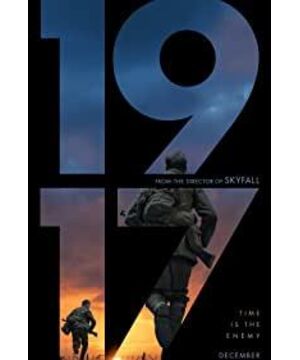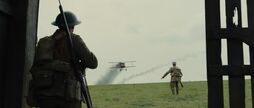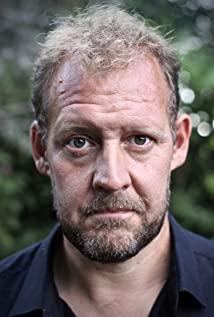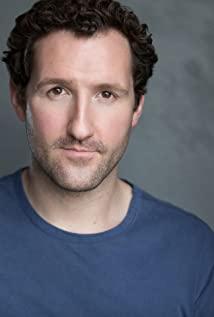1917 is really a love-hate show, first-class scheduling, first-class photography, and undoubtedly a two-hour audio-visual feast.
But compared to the one-sided "blow-out" sound, for an otaku who is addicted to games, the shock brought by 1917 will be greatly discounted. The war is shown through a one-shot shooting technique, and it is a relatively unfamiliar World War I theme, which is really eye-catching. Just after watching it, my most intuitive feeling is: Battlefield 1 is really awesome.
Battlefield 1 is an FPS game with World War I as the background, with a multiplayer battle mode and a story mode. Those well-known Battles of the Somme and Verdun are all wonderfully displayed in the game, and they are also a mirror to the end.
In contrast, games are better in terms of immersion and participation. Even the strengths of the movie, narratively, the game is handled more subtly.
There is a strange phenomenon in the entertainment industry right now: games are more and more like movies, and movies are more and more like games. It's just that on the road of assimilation, the game has gone all the way, but the movie is in a very embarrassing situation.
The current mainstream war movies are nothing more than two arguments. The most common one is the war movie with the theme that has been criticized all the time. Acura army, slam the aggressor. This kind of film is not unique in China, no matter where it is, it is a big catch. The other is anti-war, criticizing war, and eulogizing peace.
Interestingly, there are usually more themed films about World War II, such as "Inglourious Basterds", "The Destruction of an Empire", "Schindler's List", "Purple Sun" and so on. In these films, there is a clear "villain" symbol, their role is to make the protagonist unhappy, and all audiences will hate them.
Because World War II was a very clear war between good and evil, no matter how it was deconstructed, the Nazis and the imperial army were invaders, and maybe there were good people among them, but people didn't care, they were evil in film and television works. This is highly consistent across films from all countries.
The films about World War I are more subtle. Most of them are anti-war films, such as "War Horse", "The Trench" and "Merry Christmas". This type of film does not have a particularly clear symbol of evil, there may be a few bad guys, but no group is labeled evil. Even the protagonist may be a soldier of any country, be it Germany, the United Kingdom, or Turkey.
The reason is that there is no right or wrong in World War I itself. The Allies and Allies in the First World War did not have a clear aggressor and aggressor. Both sides were perpetrators and victims. It is nothing more than the infighting that unfolded because of the uneven distribution of spoils after imperialism had inflated to the extreme during the Industrial Revolution. In the First World War, the massacre of civilians such shameful things abounded.
However, the position in 1917 was very ambiguous. Mendes, as a down-to-earth Englishman, took it for granted that the British Empire was brilliant and correct, and Germany was evil... In fact, in the eyes of the British Empire, all continental European countries All are evil. So his protagonist is naturally a very traditional hero - united, loving, brave...and loving.
In the words we are more familiar with, it is a virgin white lotus.
The actions of these two protagonists even gave me the illusion that I was watching a model play. Except that their combat power was not enough, aren't these two heroes of the Anti-Japanese War? No matter how you blow up, you won't die, and you share the same hatred with the French people. Knowing that there are tigers in the mountains, they will go to the mountains. They care about their relatives on the front line. In the face of the wounded enemy, they are painstakingly treated. Even in the face of the danger of exposure, they are unwilling to kill the first time.
In contrast, the Germans are simply "devils" who are not afraid of death and charge in anti-Japanese movies. Knowing that he is going to die, he has to work hard with the protagonist and face his savior with a sword, which is really pitiful and hateful.
If the war just broke out in 1914, it would be fine, but it is hard to imagine that these two protagonists are still so naive after experiencing one of the most brutal battles in human history - the Battle of the Somme.
World War I was not a war of good and evil, but a downright tragedy. Although the death toll was similar, World War I was far more brutal than World War II. The front line is an uncompromising meat grinder. In just five months, both sides have dropped 1.5 million corpses on a 60-kilometer-long front.
People call it "the Somme hell".
Almost all soldiers who experienced the Battle of the Somme suffered from PTSD.
However, Mendez has handled 1917 very subtly as a theme film. He has tried to disguise himself as an anti-war by criticizing the cruelty of war, but the inevitable element of all anti-war films is self-criticism. At this point, 1917 is very bland.
"There is only one way to end this war - the last man standing".
It was a meaningless lament, and it even made one feel that the colonel who said it was a good man with a good sense of reason. But this is not the truth of war, nor does it show the horror of war.
In one of the few episodes that directly described "hell", the timid Blake was taken aback by the sight of two signal soldiers passing through the cratered positions. After Schofield fell from the waterfall, he climbed ashore over a dozen bodies.
The petals falling on the river of floating corpses is a stunning design, but it is quite puzzling here: Is the object of this strong criticism blaming your enemy, or both sides of the war?
Even though the corpse is full of blood, the most intuitive feeling of the audience is not the disgust for the war, but the resentment for those Germans who destroy the beautiful countryside.
This is the fundamental difference between the main theme war films and anti-war war films. The former makes people hate invaders, the latter makes people hate war.
I personally don't dislike theme movies. In fact, many theme movies are made with blood boiling and are very fragrant. But to treat a tragedy caused by the stupidity of both sides as a unilateral fault is quite a bit of blame.
Our voices about 1917 on the Internet are probably the same as "Birdman" and "Russian Ark".
One shot to the end of the movie blows up, what is it? It's over.
But the long head in 1917 showed some strange drawbacks.
Realistic and overly freehand, the strong impact that should have been produced by the beautiful lens and the brutal war was distorted by the space distorted by one mirror. Film itself is playing with time and space, and editing is one of the most important means of film. However, in order to achieve the form of "one shot", almost all editing methods had to be abandoned. On the contrary, the superb scheduling and the continuity of the shots were brought into full play.
It seems that starting from Alfonso, Hollywood has made a strange start. Many directors have begun to superstitute one shot to the end. When the core of the film cannot reach those classics, when the director is unable to express his thoughts through the film, then the means that can reflect his own value All that's left is acting and scheduling.
The Oscars for Best Cinematography, Best Visual Effects and Best Sound Effects for "1917" seem like a silent irony compared to their stellar performances in various other categories.
Having said all that, it cannot be denied that this is still a pretty good movie.
View more about 1917 reviews











